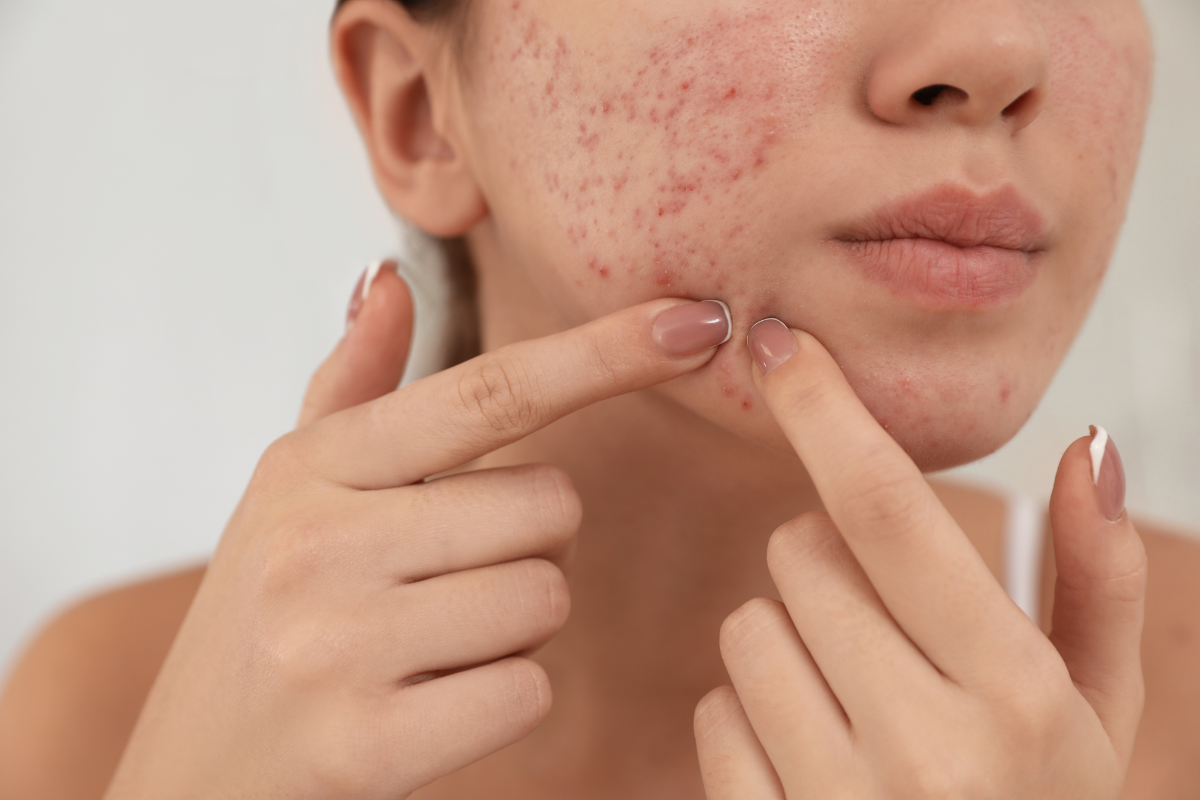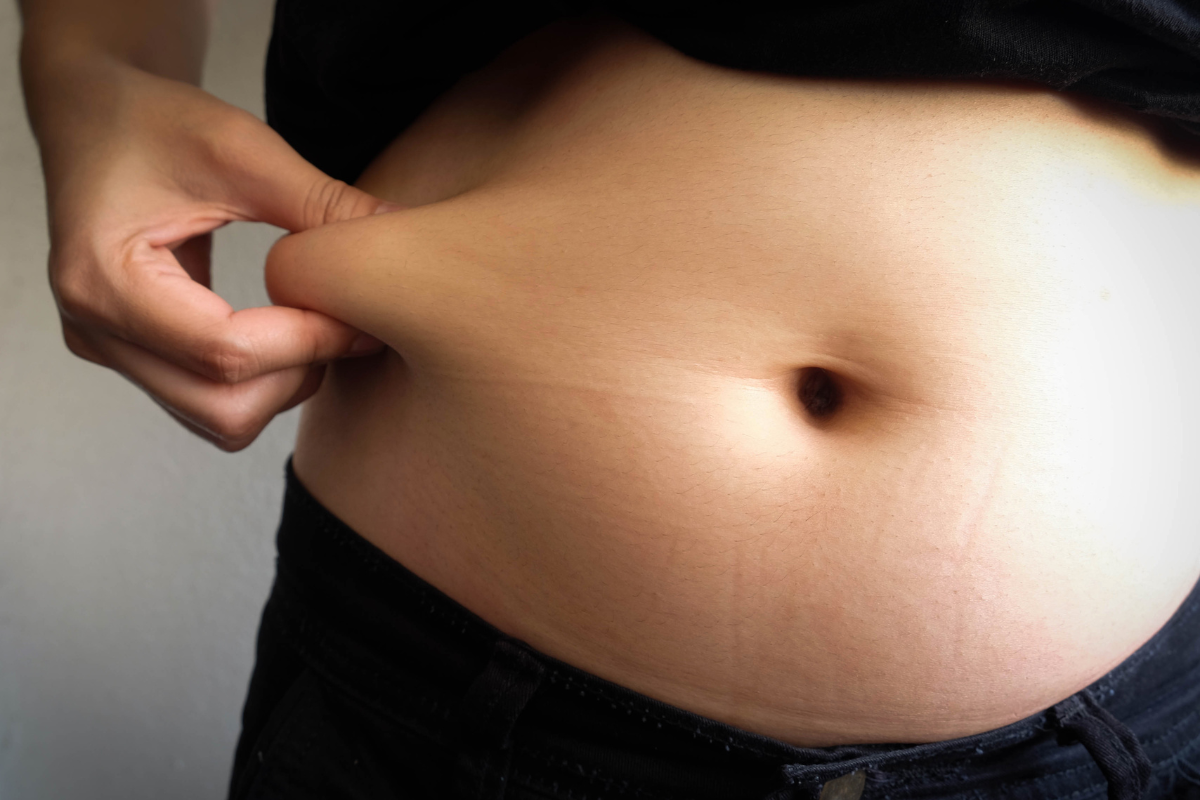Acne - the best supplements

Acne - the best supplements
Acne is an inflammatory skin disease that is common among teenagers, but can also affect adults. This skin problem can affect mental health, leading to anxiety, depression and low self-esteem. A good skin care routine can be an important component in combating acne and other skin problems, but the nutrition you get is at least as important. The skin is the body's largest organ, and deficiencies in a number of different vitamins have been linked to a reduced quality of both skin and hair .
In this article, we will focus on some of the nutrients that can be extra important to include in the diet, or take as a dietary supplement, if you suffer from acne. If you are unsure of which deficiencies you might have, a blood test can be helpful when choosing which nutritional supplements can help you.
What nutrients counteract acne?
1. Zinc
Zinc is a very important component for a number of different processes in the human body and also plays a major role in several skin problems. Already in the 70s, it could be seen that patients with acne had lower levels of zinc in their blood. Since then, several studies have shown similar results. Furthermore, several studies have seen an improved effect on acne when taking zinc. It is still not fully understood why zinc improves the skin with acne, but it is believed that it has an anti-inflammatory effect as it inhibits various inflammatory markers in the body. In addition, it is believed to be able to inhibit the conversion of the male sex hormone testosterone to the hormone dihydrotestosterone (DHT). DHT stimulates the sebaceous glands to produce oil, which can contribute to acne.
Side effects that have been reported with excessive intake of zinc in studies on acne and zinc are nausea, vomiting and stomach ache. Therefore, it may be good to carry out a blood test before taking dietary supplements with zinc to check if you really have a deficiency.
Examples of foods with zinc include pumpkin seeds, nuts, whole grains, and seafood.
2. Vitamin C
The human body requires vitamin C, among other things, to produce the collagen that is responsible for the skin's stability and strength. Another known disease that is relatively uncommon and is caused by a lack of vitamin C is scurvy. Many of the symptoms seen in scurvy, including difficulty in healing wounds, are due to impaired collagen synthesis.
In addition to being important for collagen synthesis, vitamin C has an anti-inflammatory role and can therefore reduce the occurrence of acne. Vitamin C is also used in skin care and can reduce pigmentation caused by acne due to its antioxidant effect that protects the skin against the sun's harmful UV rays.
In several clinical studies, both on humans and animals, dietary supplements with vitamin C have also promoted wound healing, which can be an advantage if you have accidentally squeezed a pimple and want to reduce the risk of scarring. However, this effect seems to be mainly important when you have a lack of vitamin C.
In foods, vitamin C is mainly found in kiwi, peppers, broccoli, oranges and other citrus fruits.
3. Vitamin D
A 2016 study compared vitamin D levels in 80 patients with acne to an equal number of people without acne. A deficiency of vitamin D was seen in 48.8% of patients with acne, but only in 22.5% of people without acne. In addition, it was seen that a more severe deficiency was linked to more intense acne. Similar results have been found in several other studies.
Why vitamin D seems to have a significant role in the occurrence of acne is partly due to the fact that the vitamin is important for the regulation of the immune system and the proliferation of sebocytes* and keratinocytes**.
Vitamin D also has an anti-inflammatory effect and can suppress the expression of a number of different inflammation markers that circulate in the blood.
The main source of vitamin D is from sun exposure, which is often lower in the winter months. Therefore, it is usually recommended that you take food supplements with you
Vitamin D during this period.
If you are unsure whether you are getting enough vitamin D, you can do a blood test to see your levels.
*Sebocytes are sebum-producing cells, i.e. the cells that secrete oil from the sebaceous glands on the surface of the skin. An excess of this oil can contribute to acne.
**Keratinocytes are cells in the bottom layer of the epidermis, and which form keratin. When these cells migrate up to the skin surface, they form the outermost skin layer with dead skin cells.
4. Folate/folic acid - vitamin B9
In food, folate occurs mainly in green leafy vegetables. Folic acid is the synthetic variant of folate found in dietary supplements. Lack of folate, vitamin B12 or iron can cause anemia, which means that you have too few red blood cells in the blood. In a study looking at the relationship between adult acne and anemia, no correlation was seen between anemia and acne. However, blood folate levels were found to be lower in patients aged 25–50 years with acne. Presumably, this could be because folate deficiency can induce inflammation in the body and reduce the bactericidal activity against a certain bacteria that causes acne, Propionibacterium acnes. You can measure your folate levels with a simple blood test .
5. Biotin - vitamin B7
People with severe acne can be prescribed the drug Isotretinoin. One of the side effects of this drug is dry skin. In a new study, from 2021, it was seen that 10 mg of biotin per day in connection with treatment with Isotretinoin helped retain moisture in the skin. Externally, patients with acne may be prescribed retinoid creams, which can also dry out and irritate the skin. Therefore, supplementation of biotin can also be beneficial in such a treatment. Furthermore, treatment with biotin can help in conditions of acne where you also have a lot of seborrhea.
Eggs, chicken and oatmeal are some examples of foods that are rich in biotin.
6. Omega-3
In the Western diet, omega-6 fatty acids predominate over omega-3 fatty acids. The difference between these fatty acids is that the omega-6 fatty acids are inflammatory, and the omega-3 fatty acids are anti-inflammatory. Omega-3 fatty acids can be found in fatty fish such as salmon, sardines or mackerel, but they are also found in vegetable sources, for example chia seeds and flax seeds. There are studies where they have seen a connection between a lower intake of fatty fish and a higher incidence of acne. Trans fats and saturated fats have also been linked to an increase in acne. At the same time, it has also been seen that dietary supplements with omega-3 fatty acids reduce inflammatory damage to the skin, which means that people with acne could be helped by such a dietary supplement.
7. Silicon
Like vitamin C, silicon is important for the synthesis of collagen and for strengthening the skin and its elasticity. Silicon is therefore often included in dietary supplements for hair, skin and nails.
Whole grain rice and green leafy vegetables are examples of food sources of silicon.
8. The collagen
As we mentioned earlier in this article, combating dry acne skin is at least as important as reducing the inflammation that acne brings, since the active ingredients in most acne skin care products are drying. In various studies conducted on mice over the past 10 years, the results have shown that collagen peptides can reduce the occurrence of dry skin, but also lower the level of inflammation markers in the blood.
Foods that contain natural collagen include primarily animal foods. If you are a vegetarian or vegan, you can, as previously mentioned, eat foods rich in vitamin C and silicon to promote collagen production. Otherwise, a food supplement with collagen can help your skin on the way to better quality.
9. Hyaluronic acid
Hyaluronic acid is also an important component to counteract dry skin. It can moisturize the skin both via external application as well as internally via dietary supplements. When taking dietary supplements, positive effects have been seen at a dose between 120-240 mg/day.
- Tags: Hud/Skin Kollagen/Collagen






